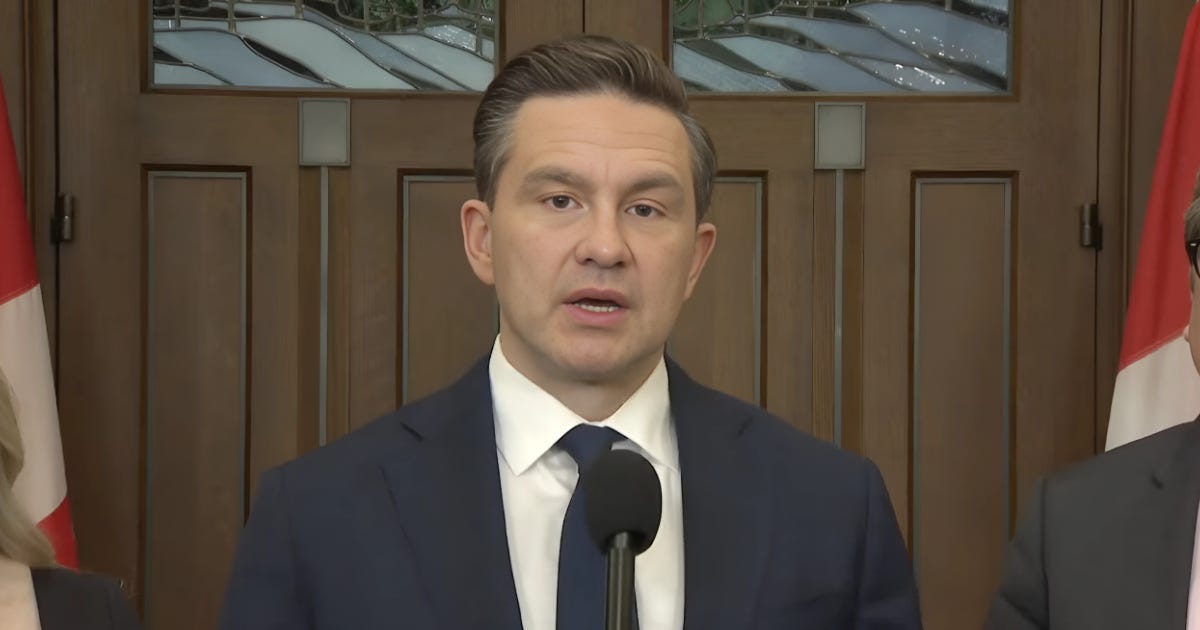Poilievre calls for Indigenous autonomy and economic partnerships
Conservative Leader Pierre Poilievre marked the National Day for Truth and Reconciliation on Monday by calling for a shift away from government overreach and toward greater economic autonomy.
Conservative Leader Pierre Poilievre marked the National Day for Truth and Reconciliation on Monday by calling for a shift away from what he described as government overreach and toward greater economic autonomy for Indigenous peoples.
In an emailed statement, Poilievre condemned the legacy of Canada’s Residential School system, calling it a “product of a big government, ‘Ottawa-knows-best’ approach” that caused “horror and heartbreak.”
“That abuse of state power tore families apart, silenced languages and shattered lives,” the statement read.
The Conservative leader emphasized that true reconciliation requires restoring control to First Nations, Métis and Inuit communities over their own affairs, and forging new partnerships to deliver “real results.”
Poilievre pointed to economic reconciliation as a key focus, calling for collaboration on responsible resource development with willing Indigenous communities. He also reiterated support for protecting firearms rights “needed for hunting and traditional ways of life.”
“On the National Day for Truth and Reconciliation, we commit to healing historical wrongs by unleashing opportunities for all Indigenous peoples as true partners in prosperity,” he said.
Prime Minister Mark Carney struck a different tone in his own message, focusing on alleged unmarked grave sites and remembrance.
Carney said reconciliation is a “generational task” and highlighted the federal government’s support for uncovering unmarked graves, implementing the UN Declaration on the Rights of Indigenous Peoples, and enacting Calls to Action and Calls for Justice from past inquiries.
As of yet, no unmarked graves have been identified, yet the narrative has inspired a wave of violence targeting Christian churches and institutions.
Since the alleged discovery of unmarked graves that never amounted to anything tangible, 123 churches have been burnt or vandalized.
A recent poll found that nearly 58 per cent of Canadians aged 18–24 believe that Canada rightfully belongs to Indigenous people.





This is Canada...
While there are certainly a few bands that get it and do wonderful things not only for their own people but for others as well most simply want our money and as much land as they can claim or out of touch, woke courts will grant them.
While PP's goals are noble I suspect the intent of most indigenous leaders if far from that.
Too bad but it is what it is.
Time to shut down the Indian guilt trip. We have given without reservation billions to the detriment of this country. As shown in polls Canadians are at the end of their giving spirit. The chiefs are the main recipients and we have a welfare system that takes care of those that don't qualify on reserves. Stupid politicians use this as a means to pacify a few gangsters and people are stupid enough to go along with it. When are we going to wake up and say enough?